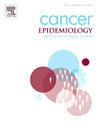意大利癌症登记和流行病学的挑战
IF 2.4
3区 医学
Q3 ONCOLOGY
引用次数: 0
摘要
我们概述了意大利癌症登记的历史和作用。自70年代以来,建立了以当地人口为基础的登记处,代表了迄今为止有价值的国家监测网络。在这一框架中,意大利癌症登记协会(AIRTUM)一直发挥着核心作用,确保高数据质量标准并支持基于癌症登记的研究。多年来,由于数据保护规则的严格和不统一适用,为基于人口的癌症登记处提供数据的卫生数据主要来源的数字化存在差距,以及最近的COVID-19大流行的影响,癌症登记出现了困难。事实上,意大利的COVID-19大流行不仅影响了癌症监测,还影响了癌症筛查和获得护理。尽管存在上述限制,但本研究对意大利人口的癌症监测覆盖率达到了前所未有的水平(约80% %),这对长期建立国家癌症登记处的观点做出了重大贡献。这篇评论介绍了一系列的手稿,更新了描述性癌症流行病学的景观,同时突出了意大利癌症登记的挑战。本文章由计算机程序翻译,如有差异,请以英文原文为准。
Challenges of cancer registration and epidemiology in Italy
We outline the history and role of cancer registration in Italy. Since the ‘70s, local population-based registries were established, representing up to nowadays a valuable national surveillance network. In this framework, the Italian Association of Cancer Registries (AIRTUM) has been playing a central role, ensuring high data quality standards and supporting cancer registry-based research. Over the years, difficulties for cancer registration arose due to a strict and non-uniform application of data protection rules, to the gap in digitalization of health data primary sources, which feed population-based cancer registries (PBCRs), and, more recently, to the impact of COVID-19 pandemic. Indeed, the COVID-19 pandemic in Italy affected not only cancer surveillance but also cancer screening and access to care. Despite the above-mentioned limitations, an unprecedented coverage of cancer surveillance on the Italian population (about 80 %) was reached for the present study, representing a substantial contribution in the perspective of the long-lasting establishment of a national cancer registry. This commentary introduces a series of manuscripts updating the landscape of descriptive cancer epidemiology, highlighting at the same time the challenges of cancer registration, in Italy.
求助全文
通过发布文献求助,成功后即可免费获取论文全文。
去求助
来源期刊

Cancer Epidemiology
医学-肿瘤学
CiteScore
4.50
自引率
3.80%
发文量
200
审稿时长
39 days
期刊介绍:
Cancer Epidemiology is dedicated to increasing understanding about cancer causes, prevention and control. The scope of the journal embraces all aspects of cancer epidemiology including:
• Descriptive epidemiology
• Studies of risk factors for disease initiation, development and prognosis
• Screening and early detection
• Prevention and control
• Methodological issues
The journal publishes original research articles (full length and short reports), systematic reviews and meta-analyses, editorials, commentaries and letters to the editor commenting on previously published research.
 求助内容:
求助内容: 应助结果提醒方式:
应助结果提醒方式:


